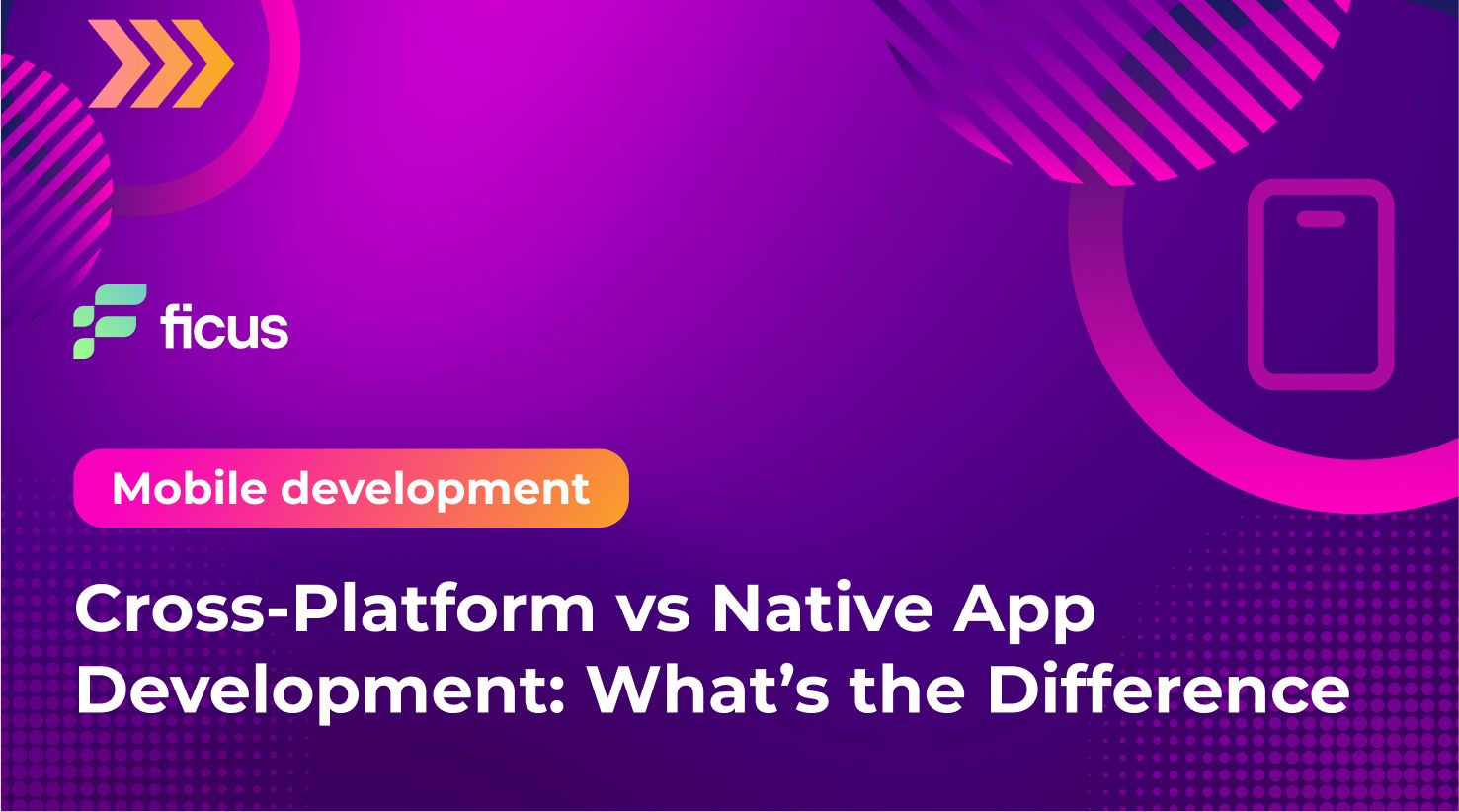In the ever-evolving landscape of the digital age, the significance of mobile applications for both businesses and user interactions has surged. The contemporary developer grapples with a pivotal dilemma: the choice between native and cross-platform development. This decision, rife with its own intricacies, hinges on an array of factors.
- Cross-platform development allows you to create mobile apps that run on different operating systems using the same code.
- Cross-platform development has many advantages, such as code reuse, faster time to market, and lower costs.
Cross-platform application development unfurls before us as an enthralling venture. It proffers the tantalizing prospect of crafting mobile applications, underpinned by a solitary codebase, adroitly suited to traverse the diverse terrains of multiple operating systems. In an era marked by the exponential proliferation of the mobile app ecosystem, businesses and developers yearn for efficacious mechanisms to cast their nets far and wide, circumventing the onus of fabricating bespoke applications for each distinct platform. To expedite this journey, developers deftly harness an arsenal of tools and frameworks tailored to the unique contours of cross-platform development. The crux of this endeavor resides in the ability to consign code to existence just once, thus enabling its ubiquitous propagation across diverse platforms, encompassing iOS, Android, and web browsers alike. In this exalted pantheon, illustrious names such as React Native, Flutter, Xamarin, and PhoneGap reign supreme.
The allure of cross-platform development beckons with its copious merits:
1. Code Reusability: In this realm, the development savants can liberally exploit the art of recycling, thereby eschewing the labyrinthine maze of escalated costs and temporal commitments.
2. Faster Time to Market: The bequest of a singular codebase fosters a realm of competitive advantage, offering swifter access to a vaster clientele.
3. Cost Efficiency: By consolidating the endeavors of a singular development team, this approach confers economies, knitting a tapestry of fiscal prudence.
4. Consistent User Experience: The providence of cross-platform frameworks ensures a uniform aesthetic and tactile experience, regardless of the user’s chosen device, fostering an ecumenical allure.
Want to hire a mobile developer?
Contact UsNative application development benefits
On the opposite shore of this formidable river, we find the Native Application Development terrain, a dominion where uniqueness and exclusivity flourish. Here, we witness the esoteric craft of sculpting native applications, meticulously tailored for specific platforms. A veritable polyglot of platform-specific programming languages like Swift and Objective-C for iOS, and Java or Kotlin for Android, converge in symphonic unison to craft bespoke applications attuned to the idiosyncratic intricacies of each platform. The treasury of benefits unfurled in this endeavor is indeed opulent:
1. Optimal Performance: Native applications, handcrafted for each platform, extract the quintessence of the underlying environment, rendering a performance that is unparalleled in its alacrity and responsiveness.
2. Access to Platform-Specific Features: Native development engenders an intimate communion with platform-specific features and APIs, thereby nurturing a user experience characterized by seamless interaction and heightened engagement with the device’s native functionality.
3. Enhanced Security: These enigmatic applications are granted the privilege of direct access to the fortress of the platform’s security protocols, thus entailing a dominion of absolute control over security measures.
4. Better User Experience: Native apps are the epitome of refinement, mirroring the aesthetics and functionality of the platform with unparalleled fidelity.
Cross-Platform vs Native App Development: how to choose?
The decision of which path to traverse hinges upon an intricate constellation of factors, each vying for primacy in the discernment of an astute developer. The considerations of time-to-market, cost efficiency, user experience, access to platform-specific features, performance, and the thorny issues of maintenance and updates must all be meticulously weighed.
1. Time-to-Market: If the expeditious deployment of your software across a multitude of platforms is the clarion call, cross-platform development emerges as the phoenix from the ashes, offering a swift creation and dissemination through the conduit of a solitary codebase.
2. Cost Efficiency: The sirens of fiscal prudence serenade the journey of creating applications spanning myriad platforms through the art of codebase unity, offering solace to the coffers and a clemency of time and resources.
3. User Experience: If the fabric of your software profoundly relies on the uniqueness of each platform, native development weaves the tapestry of an unblemished user experience.
4. Access to Platform-Specific Features: Native app development is the sanctum of unfettered access for applications that seek the bastions of platform-specific capabilities and the abyss of deep-seated operating system interaction.
5. Performance: Native applications, like the fabled centaur, gallop in a league of their own, particularly if the exigencies of your software demand arduous computations, complex visuals, or real-time entanglements.
6. Maintenance and Updates: The effervescent waters of cross-platform programming ease the toil of maintenance and updates, where the mantle of change cascades seamlessly across all platforms. In contrast, the native realm demands distinct updates for each platform, an arduous odyssey fraught with complications.
Conclusion
In this intricate dance between the cross-platform and native paradigms, Ficus Technologies emerges as the wizened sage, well-versed in the art of choice. We understand the profundity of your decision and offer our experienced hands to guide you through the labyrinth of options. Whether your heart resonates with the cross-platform symphony or beats in harmony with the native cadence, we shall sculpt your vision into a mobile application that mirrors your aspirations. Our team, equipped with the necessary sagacity, shall forge a high-quality, scalable, and user-friendly masterpiece.
Several factors should be considered when deciding between cross-platform and native development. Time-to-market, cost efficiency, and a swift deployment favor cross-platform, leveraging a single codebase. If uniqueness per platform, superior performance, and direct access to platform-specific features are crucial, native development excels. User experience, especially tailored to each platform, leans towards native, while cross-platform simplifies maintenance and updates. The choice hinges on weighing priorities such as development speed, costs, user experience, and platform-specific functionalities in alignment with the project’s objectives and requirements.
Cross-platform development simplifies maintenance and updates by employing a single codebase that seamlessly propagates changes across diverse platforms. Unlike native development, which requires distinct updates for each platform, cross-platform programming unifies the update process. This streamlining ensures that modifications, improvements, or bug fixes implemented in the codebase reflect uniformly across all targeted platforms. The efficiency in maintenance lies in the ability to make changes centrally, reducing the workload and potential discrepancies associated with managing updates separately for each operating system. This unified approach expedites the deployment of updates, enhancing overall development agility and ease of management.








